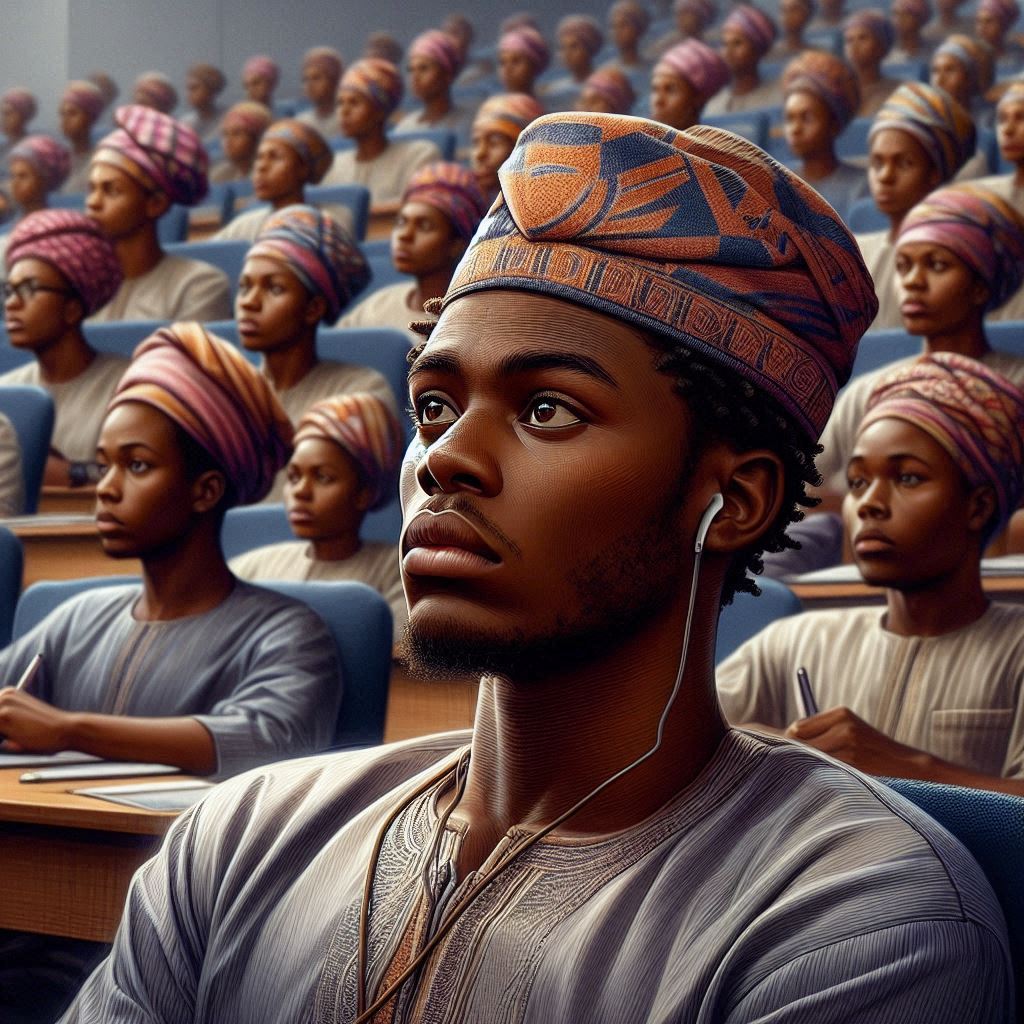Introduction
Understanding Nigerian history demands grappling with the intertwined narratives of nationalism and identity.
Significance of Nationalism and Identity
These concepts serve as crucial lenses through which to comprehend Nigeria’s complex past.
Nationalism’s Role
Nationalism propelled Nigeria’s struggle for independence and continues to shape its socio-political landscape.
Identity Dynamics
Examining identity sheds light on ethnic tensions, religious conflicts, and socio-economic disparities.
In delving into nationalism and identity, Nigerian historical studies unravel the intricate layers of the nation’s collective consciousness.
Theoretical framework of nationalism and identity
key theoretical perspectives on nationalism and identity
- Nationalism refers to loyalty and devotion to a nation’s cultural, political, or social identity
- Identity in historical studies encompasses how individuals perceive themselves within a specific national context.
- Nationalism is often viewed from various theoretical perspectives that influence scholarly analysis and interpretation.
- Key theoretical perspectives include primordialism, modernism, ethnosymbolism, and instrumentalism.
Primordialism
- This perspective suggests that nationalism arises from deep-rooted, primordial connections to one’s nation.
- It emphasizes the role of ancient ties, such as ethnicity, language, and history, in shaping national identity.
- Primordialists believe that nationalist sentiment is inherent and natural, stemming from shared ancestral heritage.
Modernism
- Modernist theories emphasize the socio-political construction of nationalism in contemporary society.
- They argue that nationalism is a product of modernization, industrialization, and political mobilization.
- Modernists view nations as artificial constructs created to serve political, economic, or social interests.
Ethnosymbolism
- Ethnosymbolism examines the symbolic meanings attached to ethnic identities, folklore, and cultural heritage.
- It argues that national identity is constructed through shared myths, symbols, rituals, and traditions.
- Ethnosymbolists consider how cultural symbols and narratives shape collective national consciousness.
Instrumentalism
- Instrumentalist perspectives view nationalism as a tool used by political elites to achieve specific goals.
- They contend that national identity is manipulated and mobilized for political, economic, or social purposes.
- Instrumentalists focus on the strategic use of nationalism to maintain power, control resources, or mobilize support.
In general, understanding nationalism and identity in Nigerian historical studies requires a comprehensive exploration of theoretical frameworks.
By examining primordialism, modernism, ethnosymbolism, and instrumentalism, scholars can gain insights into the complexities of national identity formation.
These theoretical perspectives offer valuable tools for analyzing the historical development of nationalism and identity in Nigeria and beyond.
Read: Developing Critical Thinking in Language Arts
Colonial influences on nationalism and identity
Impact of colonialism on the development of nationalism in Nigeria
Colonial rule in Nigeria played a significant role in shaping the country’s nationalist movements.
British colonialists imposed their language, culture, and administrative systems, which influenced Nigerian’s sense of identity.
The imposition of colonial rule created a sense of unity among Nigerians, leading to resistance and demands for self-governance.
Nationalists like Nnamdi Azikiwe and Obafemi Awolowo emerged in response to colonial oppression, advocating for independence.
Colonialism also contributed to the formation of ethnic and regional identities within Nigeria, as different groups responded to colonial policies differently.
How colonial policies influenced the formation of nationalistic movements
Colonial policies such as indirect rule and forced labor fueled grievances among Nigerians and led to the rise of nationalist movements.
Indirect rule, which empowered traditional rulers to govern on behalf of the British, sparked resistance from educated elites who sought political power.
Forced labor practices under colonial rule caused economic hardship and social unrest, driving Nigerians to demand self-rule and independence.
Colonial education policies also played a role in shaping nationalist ideologies, as educated Nigerians became key figures in the fight for independence.
Overall, colonial policies created conditions that necessitated the formation of nationalistic movements in Nigeria.
Read: Student Experiences: Life in Communication Arts
Independence era and nationalism
During Nigeria’s struggle for independence, nationalism played a crucial role in shaping the nation’s identity and political landscape.
Role of nationalism in Nigeria’s struggle for independence
- Nationalism fueled the desire for self-determination and sovereignty among Nigerians.
- It inspired individuals and groups to fight against colonial rule and oppression.
- Nigerian nationalists sought to create a united and independent nation free from foreign domination.
- They mobilized people across different ethnic groups to join the movement for independence.
Contribution of different ethnic groups to the nationalist movement
- The Yoruba ethnic group, led by figures like Obafemi Awolowo, played a significant role in advocating for self-governance.
- The Igbo ethnic group, with leaders like Nnamdi Azikiwe, also contributed to the nationalist struggle through activism and political mobilization.
- The Hausa-Fulani ethnic group, represented by leaders such as Ahmadu Bello, supported the push for independence and self-rule.
- Minority ethnic groups in Nigeria, though often marginalized, also participated in the nationalist movement to secure their rights and freedoms.
Overall, Nigeria’s independence era was characterized by a united front of diverse ethnic groups working together under the banner of nationalism to achieve the common goal of freedom and self-governance.
Read: Communication Arts: Balancing Theory and Practice

National identity post-independence
After gaining independence in 1960, Nigeria faced significant challenges in forging a cohesive national identity due to its diverse population consisting of over 250 ethnic groups.
This diversity has been both a source of strength and division, making it difficult to establish a unified sense of identity.
Challenges of forging a national identity
- Ethnic diversity: The presence of multiple ethnic groups with distinct languages, cultures, and traditions has often fueled tensions and hindered the creation of a shared national identity.
- Religious differences: Nigeria is divided along religious lines, with a significant Muslim population in the north and a Christian majority in the south. This religious divide has at times exacerbated conflicts and impeded efforts to foster national unity.
- Regional disparities: Disparities in development, resources, and opportunities between different regions of Nigeria have contributed to feelings of marginalization and disunity among the populace.
- Political instability: Periods of military rule, coups, and corrupt governance have undermined trust in the government and eroded confidence in the ability of leaders to promote a shared national identity.
Factors shaping the national identity
- Colonial legacy: The legacy of British colonialism has left lasting imprints on Nigeria’s political, social, and cultural landscape, influencing the country’s identity formation post-independence.
- Cultural heritage: Nigeria’s diverse cultural heritage, encompassing music, art, festivals, and literature, plays a crucial role in shaping the national identity and fostering a sense of belonging among its citizens.
- Language: The adoption of English as the official language of Nigeria has facilitated communication and interaction across ethnic boundaries, helping to bridge linguistic divides and promote a shared identity.
- National symbols: Symbols such as the national flag, anthem, coat of arms, and national holidays serve to unite Nigerians around common values, ideals, and historical experiences.
In short, Nigeria’s journey towards building a strong and inclusive national identity continues to face numerous obstacles, but efforts to promote unity, respect diversity.
And celebrate shared heritage are essential for fostering a sense of belonging and cohesion among its diverse populace.
Read: How to Apply for Communication Arts Programs
Historiography of Nationalism and Identity in Nigeria
In exploring the historiography of nationalism and identity in Nigerian historical studies, it is crucial to review existing literature on these topics.
Understanding the various perspectives and interpretations of nationalism and identity can provide valuable insights into the historical context of Nigeria.
Review of Existing Literature
- Many scholars have written extensively on nationalism and identity in Nigeria, offering diverse viewpoints on these complex issues.
- Some prominent works include Chinua Achebe’s “Things Fall Apart” and Wole Soyinka’s “Ake: The Years of Childhood,” which explore themes of Nigerian identity and nationalism.
- Other scholars such as Toyin Falola, Nwando Achebe, and Mahmood Mamdani have contributed significantly to the discourse on nationalism and identity in Nigerian historical studies.
- These scholars have delved into the historical roots of nationalism in Nigeria, examining how identity formation has shaped the country’s socio-political landscape.
- Works such as Falola’s “Nationalism and African Intellectuals” and Achebe’s “The Trouble with Nigeria” offer critical analyses of nationalist movements and identity politics in Nigeria.
Key Scholars and Theories
- Toyin Falola is a key scholar whose work on nationalism in Africa has influenced the study of identity formation in Nigeria.
- Nwando Achebe’s research on gender, family, and identity in Nigeria has provided valuable insights into the complexities of Nigerian nationalism.
- Mahmood Mamdani’s theory of “citizen and subject” has been instrumental in understanding the dynamics of identity and nationalism in postcolonial societies.
- Other scholars such as Chidi Okigbo, Oyeronke Oyewumi, and Tejumola Olaniyan have also made significant contributions to the discourse on nationalism and identity in Nigeria.
- By drawing on these key scholars and theories, historians have been able to analyze the multifaceted nature of nationalism and identity in Nigerian historical studies.
Overall, the historiography of nationalism and identity in Nigeria is a rich and complex field that continues to evolve with new research and scholarship.
By examining existing literature and engaging with key scholars and theories, historians can gain a deeper understanding of the historical context of nationalism and identity in Nigeria.
Learn More: How Nigerian Arts Reflect Social Issues
Regionalism in Nigerian historical studies
In Nigerian historical studies, regionalism and nationalism have played significant roles in shaping the country’s identity.
Regionalism refers to the strong attachment and loyalty to a particular region within a country. In Nigeria, regional identities have often been based on geographical and cultural differences.
Historically, Nigeria was divided into regions such as the Northern, Western, Eastern, and later the Mid-Western regions. Each region had its unique cultural practices, languages, and traditions, which shaped the identity of its people.
Nationalism in Nigerian historical studies
On the other hand, nationalism in Nigeria refers to the collective consciousness and pride in being part of a unified nation.
Nationalism emphasizes the shared history, values, and goals of a diverse population.
The push for nationalist movements in Nigeria was driven by the desire to unite the various regions and ethnic groups under a common identity.
This was crucial in the fight for independence and the creation of a national identity.
Contrasting regionalism and nationalism
- Regionalism focuses on loyalty to a specific region, while nationalism emphasizes unity as a nation.
- Regional identities are based on local cultures, languages, and traditions, whereas nationalism brings people together under a common identity.
Influence of regional identities on national identity
- Regional identities have influenced the development of national identity in Nigeria by highlighting the rich diversity of cultures within the country.
- These regional differences have sometimes led to conflicts and tensions, but they have also contributed to the vibrant tapestry of Nigeria’s national identity.
Most importantly, while regionalism and nationalism may seem like opposing forces, they have both played crucial roles in shaping the complex identity of Nigeria.
Embracing the diversity of regional identities while uniting under a common national identity is key to fostering unity and progress in the country.
You Might Also Like: Networking Tips for Communication Studies Students
Delve into the Subject: Future of Criminology & Security Studies in Nigeria
Gain More Insights: Interfaith Dialogue in Islamic Studies Nigeria
Contemporary debates on nationalism and identity
When discussing current issues related to nationalism and identity in Nigeria, it is important to address the ongoing conflicts that arise from ethnic, religious, and political differences.
These issues have been exacerbated by economic disparities, social inequalities, and lack of opportunities for marginalized groups.
The Boko Haram insurgency in the northern region, conflicts between farmers and herders, as well as ethno-religious violence, have all contributed to heightened tensions in the country.
These conflicts have deepened divisions and undermined national unity.
Transform Your Career with Expert Guidance
Get personalized mentorship consulting that’s tailored to your unique path. Our expert advice is actionable and exclusive.
Get StartedAdditionally, debates over resource allocation, power-sharing arrangements, and political representation have fueled sentiments of exclusion and discrimination among different ethnic groups.
This has resulted in increased calls for restructuring and decentralization to address historical grievances and promote equitable development.
How these debates shape the understanding of Nigerian history
By exploring these contemporary debates on nationalism and identity, we can gain insights into the complex historical processes that have shaped Nigeria as a nation.
The struggles for independence, the civil war, and subsequent military dictatorships have all left lasting legacies on the country’s political landscape.
Understanding the role of nationalism and identity in Nigerian history helps us appreciate the diverse cultural heritage of the country and the challenges of fostering a sense of common identity among its multi-ethnic population.
It also sheds light on the impact of colonialism, globalization, and democratization on national identity formation.
Through these debates, historians and scholars have highlighted the importance of acknowledging historical injustices, promoting dialogue, and fostering mutual understanding among different groups in Nigeria.
This not only enriches our understanding of the past but also informs current efforts to build a more inclusive and cohesive society.
Delve into the Subject: Learning Nigerian Languages: Resources and Tips
Explore Further: Key Theorists in African and Asian Studies
Conclusion
In exploring nationalism and identity in Nigerian historical studies, we have delved into the complexities of the nation’s past.
Understanding how these concepts have shaped Nigeria’s history is crucial in comprehending the current socio-political landscape.
Examining nationalism’s role reveals its dual nature, serving as both a unifying and divisive force in Nigeria.
The struggles for independence and efforts to define a national identity have greatly influenced the trajectory of the country.
Moreover, the study of identity in Nigerian history reveals the diverse ethno-cultural makeup of the nation. This diversity has been both a source of strength and conflict throughout Nigeria’s history.
Studying nationalism and identity in Nigerian historical studies reveals the nuances of the country’s past and present.
This exploration illuminates interconnected narratives and fosters a deeper understanding of Nigeria’s complex socio-political landscape.
By recognizing these intricate dynamics, we can work towards a more inclusive and cohesive society in Nigeria.
Lastly, delving into nationalism and identity in Nigerian historical studies is crucial. It fosters a deeper understanding and addresses contemporary challenges.
This research provides invaluable insights into Nigerian society, fostering a nuanced approach to nation-building and unity.
[E-Books for Sale]
The Nigerian Professional's Playbook: Strategies to Accelerate Your Career and Build Lasting Wealth
₦2,000 • 10 Chapters • 33 pages
Fed Up with Stagnant Salaries and Career Frustration? Grab the Proven Nigerian Playbook for Just ₦2,000!
See All 10 Chapters of this E-Book
500 Cutting-Edge Tech Startup Ideas for 2024 & 2025: Innovate, Create, Dominate
₦3,000 • 500 Tech Startup Ideas • 62 pages
You will get inspired with 500 innovative tech startup ideas for 2024 and 2025, complete with concise descriptions to help you kickstart your entrepreneurial journey in AI, Blockchain, IoT, Fintech, and AR/VR.
See All 500 Tech Startup Ideas of this E-Book
Mastering Project Management: A Comprehensive Guide to GanttPRO and Microsoft Project
₦3,150 • 10 Chapters • 102 pages
Explore 'Mastering Project Management,' an e-book guide on using GanttPRO and MS Project for optimal project success.
See All 10 Chapters of this E-Book
Migration Mastery: From Nigeria to Abroad
₦2,450 • 30 Chapters • 244 pages
Unlock success in your migration from Nigeria with our e-book. Comprehensive guide for a smooth transition abroad.
See All 30 Chapters of this E-Book
The Future of Work in Nigeria: Trends, Professions, and Possibilities
₦3,500 • 24 Chapters • 188 pages
Navigate Nigeria's evolving job landscape with our e-book on the future of work. Gain key insights into tech innovations and cultural shifts. Stay ahead; purchase today.
See All 24 Chapters of this E-Book
50 Simple Tips to Stay Ahead of Your Peers
₦1,750 • 5 Chapters • 25 pages
Master success with '50 Simple Tips to Stay Ahead of Your Peers'. Unlock strategies to outshine and excel in every aspect of life.








